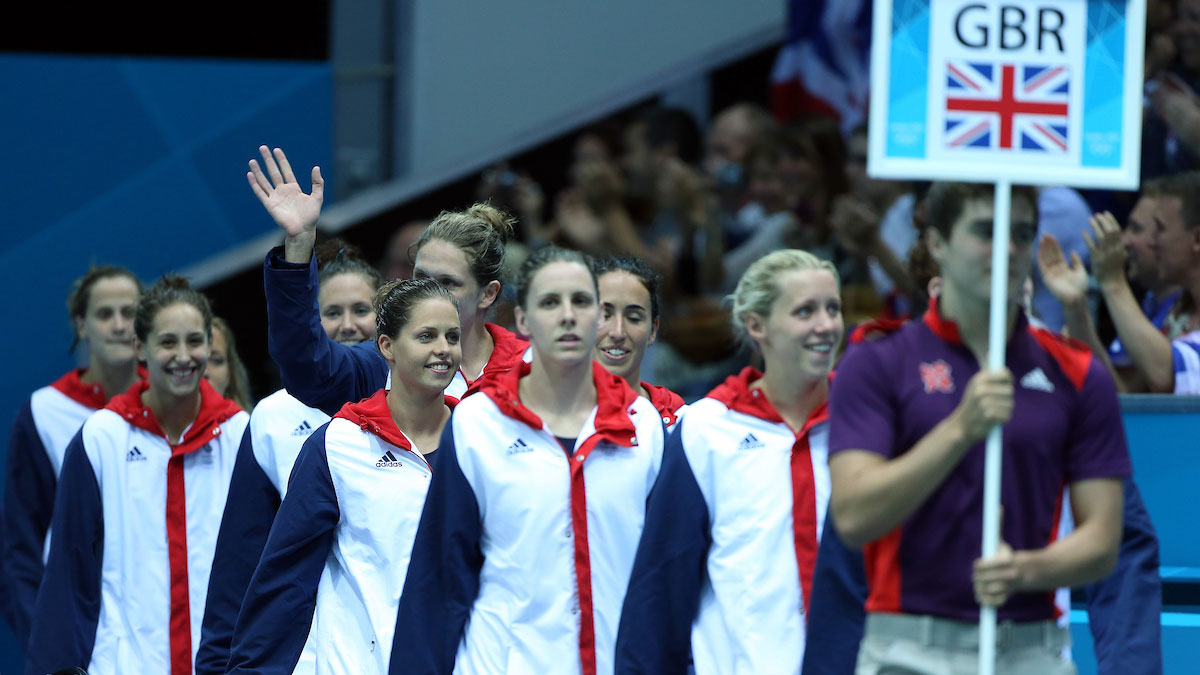
Water polo at the Olympic Games
January 1, 2017Countries have been competing in water polo at the Olympic Games since the second modern Olympics in 1900.
The 1900 Games in Paris featured a men’s competition, held in the Seine river, with seven domestic teams representing Great Britain, France, Germany and Belgium.
Water polo was contested as a demonstration sport between four domestic American teams at the 1904 Olympics in St Louis before returning to the official Olympic schedule at the London 1908 Games.
There has been a competition for men’s water polo at the Olympic Games at every staging of the Games since 1908.
Women have contested water polo at the Olympic Games since the 2000 Olympics in Sydney, 14 years after the first women’s competition at a FINA World Championship was held in Madrid.
English water polo at the Olympic Games
Great Britain were initially the dominant force in water polo at the Olympic Games, winning the first four men’s gold medals in 1900, 1908, 1912 and 1920.
Osborne Swimming Club from Manchester won the first Olympic water polo gold in Paris. As the competition was open to domestic teams, the British winners actually featured a New Zealand player, Victor Lindberg, while Yorkshireman Bill Burgess won a bronze medal with French club Libellule de Paris.
British teams played again in 1924 and 1928, then at four consecutive Olympics between 1936 and 1956.
After a 56 year hiatus, Team GB were represented in the men’s competition for an 11th time as hosts at London 2012, finishing 12th.
London 2012 is the only competition where there have been English women playing water polo at the Olympic Games. The British team finished eighth, losing 9-7 to eventual silver medallists Spain in the quarter finals.
Team GB Olympic water polo results
(rosters feature full teams including non English players)
Men’s Competition
- Paris 1900 – Thomas Coe, Robert Crawshaw, William Henry, John Arthur Jarvis, Peter Kemp, Victor Lindberg, Frederick Stapleton – gold
- London 1908 – George Cornet, Charles Forsyth, George Nevinson, Paul Radmilovic, Charles Sydney Smith, Thomas Thould, George Wilkinson – gold
- Stockholm 1912 – Charles Sydney Smith, George Cornet, George Wilkinson, Charles Bugbee, Arthur Edwin Hill, Paul Radmilovic, Isaac Bentham – gold
- Antwerp 1920 – Charles Sydney Smith, Paul Radmilovic, Charles Bugbee, Noel Purcell, Christopher Jones, William Peacock, William Henry Dean – gold
- Paris 1924 – Harold Annison, John Budd, Charles Bugbee, Richard Hodgson, Arthur Hunt, Paul Radmilovic, Charles Sydney Smith, D Edward, R Haston, William Peacock – lost R1
- Amsterdam 1928 – Percy Peter, Jack Hatfield, Edward Temme, Paul Radmilovic, William Quick, Richard Hodgson, Jack Budd, Nicholas Beaman, Leslie Ablett – fourth, lost bronze medalist match
- Berlin 1936 – Leslie Ablett, Ernest Blake, David Grogan, William Martin, David McGregor, Frederick Milton, Robert Mitchell, Alfred North, Leslie Palmer, Reginald Sutton, Edward Temme – eighth
- London 1948 – Charles Brand, Roy Garforth, Robert Gentleman, Peter Hardie, Ian Johnston, Trevor J Lewis, David Murray, Reginald Potter, John Jones, Robert Mitchell, G F Weber – lost first group stage
- Helsinki 1952 – Charles Brand, John Ferguson, Stan Hawkins, Ian Johnston, John Jones, Terry Miller, David Murray, Ron Turner, Gerald Worsell – lost first group stage
- Melbourne 1956 – John Ferguson, Arthur Grady, John Jones, Bob Knights, Terry Miller, Peter Pass, Cliff Spooner, Ron Turner, Gerald Worsell – seventh
- London 2012 – Edward Scott, Ciaran James, Glen Robinson, Sean King, Craig Figes, Jack Waller, Alex Parsonage, Jake Vincent, Rob Parker, Adam Scholefield, Sean Ryder, Joseph O’Regan, Matthew Holland – lost group stage
Women’s Competition
- London 2012 – Robyn Nicholls, Chloe Wilcox, Fiona McCann, Francesca Snell, Alexandra Rutlidge, Frances Leighton, Lisa Gibson, Hazel Musgrove, Ciara Gibson-Byrne, Angela Winstanley-Smith, Francesca Clayton, Rebecca Kershaw, Rosemary Morris – lost QF
 Swim England Water Polo Hub
Swim England Water Polo Hub